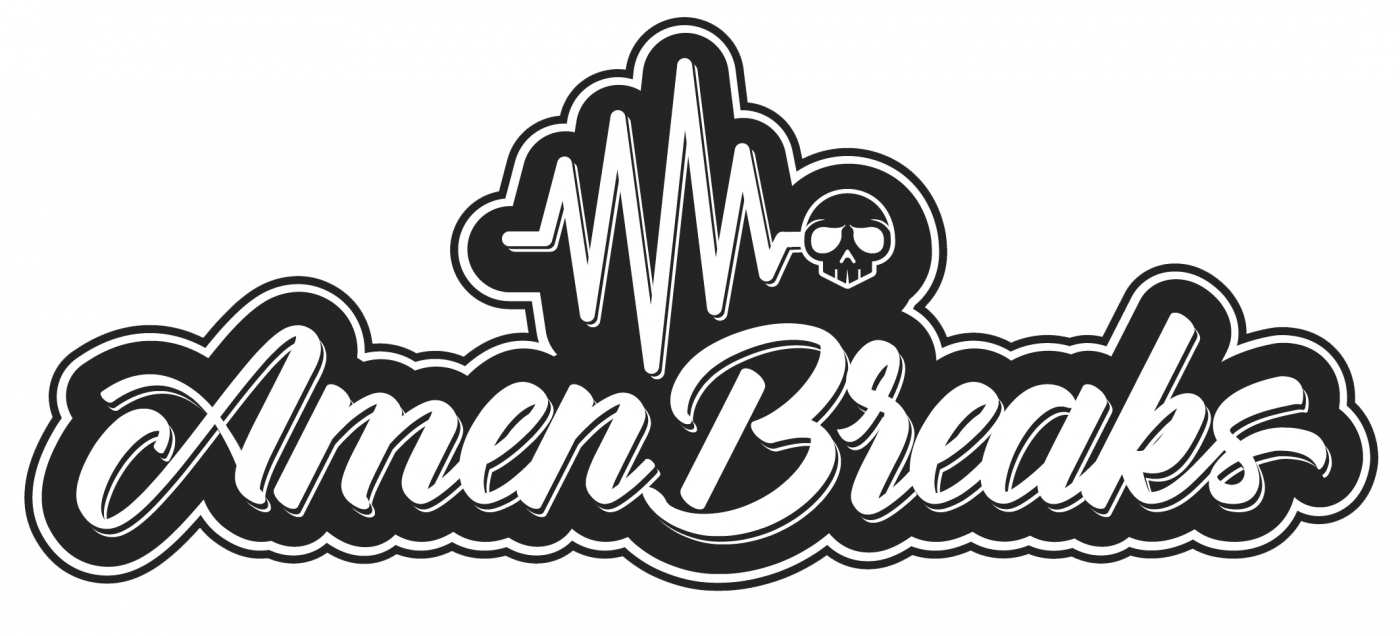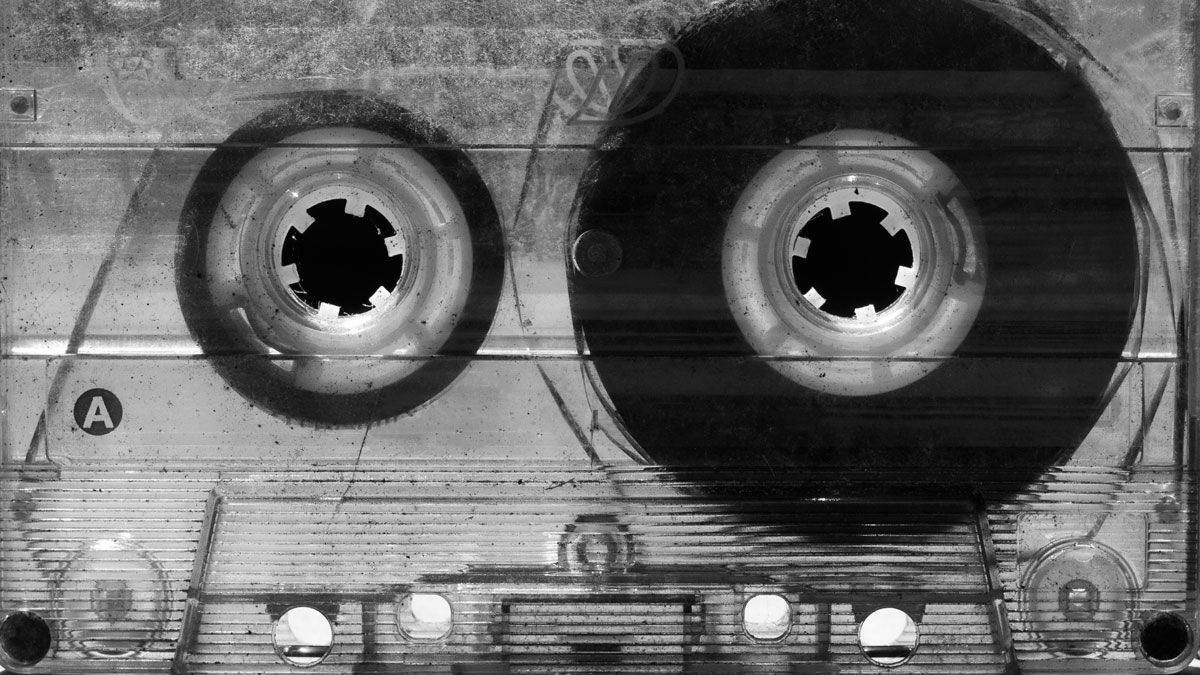Drum & Bass, Drum and Bass Culture, Introspective
Does Drum and Bass Have A Nostalgia Problem?
Nostalgia is a potent force in the human psyche. It comes from ancient Greek meaning the pain from an old wound. An apt description of the emotional pull that people feel when they think back to their younger days. Nostalgia can make us smile, reminisce and even take up things again that we had put down for years. When we think of the past in terms of the rave and drum and bass scene, it can evoke happy memories of those that were present (or not as the case may be). Hark back to a more carefree, rebellious time as part of a burgeoning movement that represented the youth and future.
Unfortunately, nostalgia has a dark side too. It can make us resentful of modernisation, change and development of what we considered something pure. It can cloud our judgement of modernity and close off our minds to progress, thinking that things were better in the old days, so there’s no need to change anything about what we knew and loved.
No scene, no person and no thing is immune to the power of nostalgia, and today we will be looking into whether or not drum and bass has a nostalgia problem.
 DNB Pioneers Are Old(er)
DNB Pioneers Are Old(er)
A lot of the people at the front end of the drum and bass scene are those that have been in it, pretty much since the start. We still listen to music made by people who were shaping the scene when it first started. Now, that’s not to say that these people aren’t still pushing the scene forwards. They very much are. In fact, they are the people who are giving a platform for the scene to evolve through their labels, events and artists they bring on.
The fact that so many legends are still on the scene and play such huge roles in it, means there is a sort of hierarchical affair going on. Rightly, people expect a certain sound and vibe from a dj but it could be considered that people expect a sound and a vibe from a place in time that theoretically no longer exists. Remember in the early 2000’s when drum and bass was being formalised and all the jungle djs said it’d never catch on? The pioneers of this time are now seen as the gatekeepers of musical progression. Nobody seems to be talking about the new sound within the scene at the moment. Does this mean that progression has slowed, or even stopped altogether, due to the hierarchical state of dnb artists?
Drum and bass is well into its 30’s now. It’s a legitimate scene, culture and movement. As with any progression into legitimacy, individuals and organisations seek to establish authority and order. Is having so many legends running the show causing it to look more into its past than it’s future?
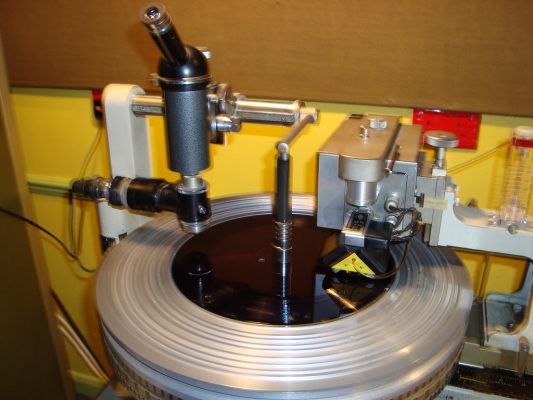 Dubplate Culture Is Mainstream
Dubplate Culture Is Mainstream
Drum and bass was built around dubplate culture. It’s what drove the scene forwards in its early days and it’s what is helping it to evolve today. Dubplates, in and of themselves, are easily made now. You don’t need to go to a cutting house and wait for hours on end to get one made. They certainly don’t cost anywhere near as much to make either. In fact, as long as you have software, you are able to produce as many as you like.
The problem with dubplate culture being of mainstream prevalence is that there seems to be a thought process that if you aren’t producing dubs, then you aren’t really a proper producer or dj. If you are constantly dropping dubplates then you aren’t really looking forwards or at the ability to progress the sound of the scene. Yes, there should always be a way to remind ourselves of the roots and culture of dnb, but recycling the same sounds from years gone by simply means drum and bass becomes stuck in a time loop, where people become skeptical of progression, saying that the old ways are best.
Now, we aren’t saying there is anything wrong with making dubplates. We aren’t saying that they shouldn’t be produced as they promote collaboration, however they also represent an eltisim in drum and bass that makes growth potentially difficult to achieve. Producers want to get their music heard and so the thought process is that they need to produce dubs to move into that inner circle.
Back in the day, only those who were able to afford it and were in the scene full time had the ability to make dubplates, as a result, only a select few artists were able to get them made. Now, in the context of things, those select artists were pretty much everyone who was involved in the scene from the start. Whilst this may be a large group, within the scene, it’s still the same people who have that hierarchical status we spoke about earlier.
Vinyl Sales Are Still High
We are not here to bash vinyl. It has an important place within the culture of the dnb scene. However, vinyl is no longer a practical application of music anymore. It’s purely made and bought by nostalgic people. They will list their reasons, one of which being, ‘vinyl sounds better,’ (it isn’t true) but the real reason they still buy and labels are still producing is because of nostalgia. You don’t get Justin Beiber fans buying vinyl. It’s impractical, even if it would actually make the record labels more money (selling a physical product makes piracy harder and enables labels to add higher profit margins).
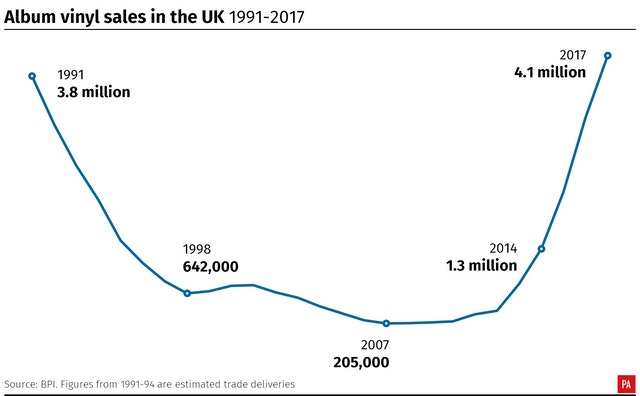
Music is all about accessibility, which to some degree, is why dubplates are so coveted in drum and bass. People don’t want to carry around music playing machines anymore. They want instant access wherever they are. Lossless music files are available, 3D, surround sound experiences are possible through wireless headphones. Music has never sounded so good, nor been more accessible, so why won’t people allow vinyl to die a dignified death? Nostalgia.
Artists and producers see getting something pressed to vinyl as a badge of honour, when in reality it’s a bit pointless. Again, we recognise that pressing to vinyl has a positive impact on the economy and many businesses who would otherwise have disappeared, so we aren’t saying they’re bad.
Vinyl is impractical; delicate, easily damaged, requires a great deal of care and are heavy to carry around in large volumes. Nothing about it makes sense given the alternatives in today’s world.
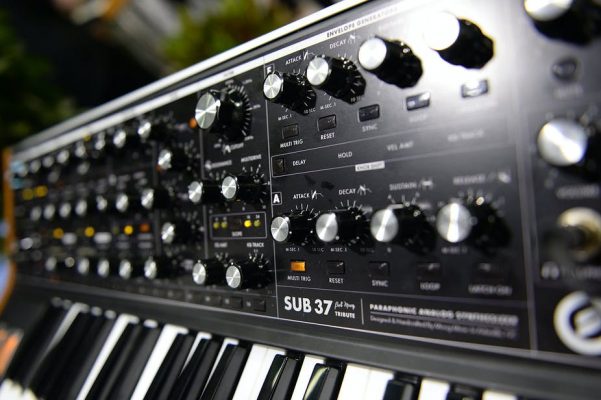 Hardware In The Studio
Hardware In The Studio
We spoke about getting something pressed to vinyl being a badge of honour. Using hardware in the studio can also be added to that list. Why would people, especially in an electronically produced music scene like drum and bass, want to use synths and other hardware in production?
In times gone by, and even now, they are prohibitively expensive for anyone other than seriously dedicated or already established musicians to purchase. Then once you have one, you are limited to what that piece of hardware can produce in terms of sound. Yet again, it seems as though as a producer, you haven’t really made it unless you have some hardware in your studio.
In all honesty, that piece of hardware you bought for £2000 or more can easily be replicated on a piece of either dedicated software like Massive, Sylenth or Serum, or within your DAW of choice. You are also able to massively manipulate the sound of any hardware within software or your DAW.
It may seem like we’re bashing the traditional aspects of the drum and bass scene. We aren’t, we recognise that hardware is a vital part of music production, just maybe not dnb anymore.
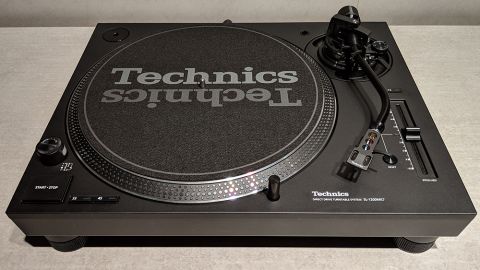 Nostalgia For Nostalgia’s sake
Nostalgia For Nostalgia’s sake
Everything always seems better in the past. We all have this rose tinted vision of the past being more exciting or progressive than today. In some way, it’s true. However, for every junglist out there who wishes they could go back to all vinyl sets and 160 breakbeat jungle nights, boshing white doves (because even the pills were better back then), there are 10 other artists who would tell you that whilst those nights were fun, it’s not as good as life in the modern day is.
Imagine being an artist and having to use reel to reel sampling? Imagine having to spend £30-50 on a dubplate just to hear what your track sounded like on a sound system, only to find out that you needed more work on it done. Imagine having to wait for hours on end to get a dubplate cut, only to have someone walk in, who would get immediate preferential treatment?
There were no such things as dnb festivals, music wasn’t nearly as accessible and doesn’t cost anywhere near as much to get hold of now (another issue for another day). There’s no likelihood that a dj’s set will skip due to vibrations from the sound system. The music clarity and quality is unlike we’ve literally ever heard in history.
Drum and bass is moving forwards, always has and always will. 2019 may even be known as the golden age of drum and bass, such was the vastness of production, variety and quality.
Is There Really A Nostalgia Problem?
It depends who you ask. If you ask us, then to some degree, yes we feel there is a nostalgia problem. A problem of opinion. It seems too many people are too quick to jump on issues, or even give opinions on things that are taking a natural course. Ourselves included.
Drum and bass is in a unique period in its history. One that will unlikely ever be repeated. The biggest labels are being run by original pioneers. We can still see them play and listen to them live. The scene is established and has outlived many other genres of electronic music. It allows for its roots culture to still be prevalent in its sound, but still drives relentlessly forward in its evolution. Being bogged down in the minutia of opinion and unwillingness to accept progress is where the real problem lies, not necessarily in nostalgia itself.
Nostalgia can be a driver for good. It makes us remember fondly the good times and we should be using it to drive us on to more.
